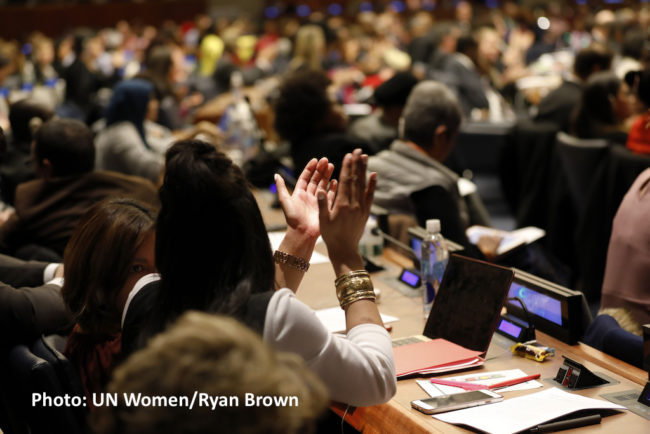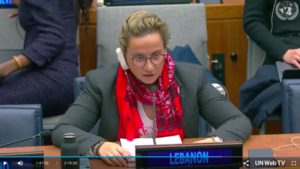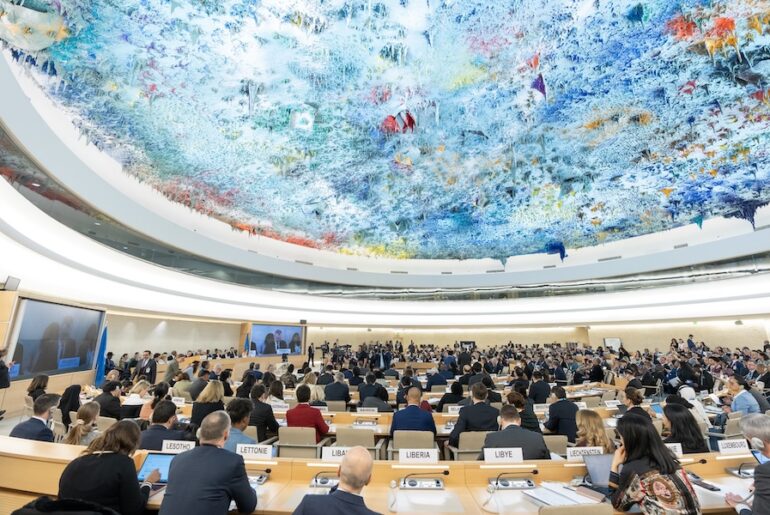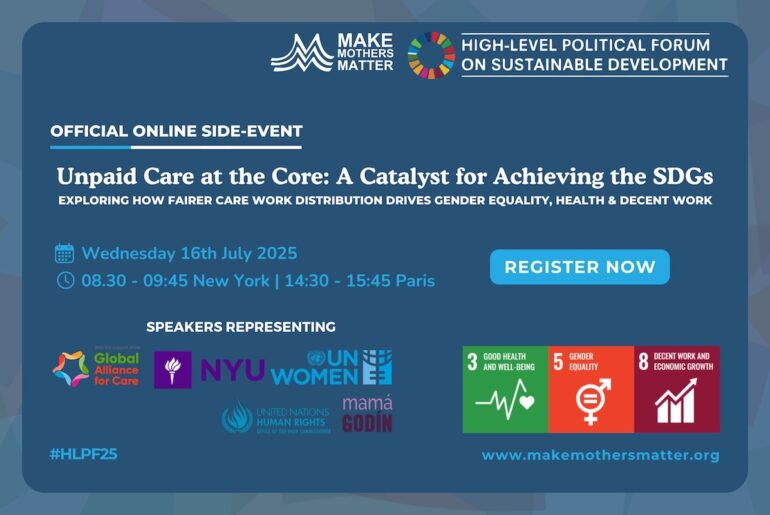CSW63 key recommendations for social and maternity protection for mothers welcomed by MMM
31.03.19
UN New York – The 63rd Commission on the Status of Women (CSW63) concluded on Friday 22nd March by the adoption “by consensus” of its “draft agreed conclusions”.

This output document, a result of lengthy negotiations among Member States, contains an analysis of this year’s priority theme – “Social protection systems, access to public services and sustainable infrastructure for gender equality and the empowerment of women and girls”. More importantly, these agreed conclusions also provide a set of policy recommendations for governments and other relevant stakeholders that we at MMM welcome.
Two States, Saudi Arabia and Egypt, distanced themselves from the adopted text – and several others also indicated that the text could not prevail over their national or customary Law. , Many states also expressed regret on the weakness of the text, in particular, on Sexual and Reproductive Health and Rights (SRHR).
We at MMM, however, are delighted that these agreed conclusions include two policy recommendations that are particularly relevant for mothers, and which we have long been advocating for:
1- Recognize and value unpaid care and domestic work by ensuring access to social protection for unpaid caregivers, including coverage for health care and pensions (l)
2- Guarantee access to maternity protection in accordance with the Maternity Protection Convention, 2000 (No. 183) of the International Labour Organization for all workers and promote the equal sharing of responsibilities by expanding parental leave that incentivizes fathers’ participation in child rearing. (m)
The first recommendation implicitly recognizes that unpaid family care work IS indeed work, which should give access to social protection like for any other worker. The second recommendation answers the abysmal statistics that only 41.1% of mothers globally with new-borns receive maternity benefit – a figure that drops to 15.8 % in Africa.
A lot of work still remains to be done to ensure that every mother around the world receives adequate social protection and benefits from public infrastructure and services that support the unpaid work of caring – including access to clean water and sanitation, energy, healthcare, transportation, ICT, etc.
 Taking to the floor during the last meeting of the Commission, the delegate for Lebanon received a standing ovation after a passionate plea to further work in improving the situation of women and girls everywhere around the world. She concluded with a word of caution, quoting Simone de Beauvoir:
Taking to the floor during the last meeting of the Commission, the delegate for Lebanon received a standing ovation after a passionate plea to further work in improving the situation of women and girls everywhere around the world. She concluded with a word of caution, quoting Simone de Beauvoir:
“Don’t forget that it will be enough for one political, economic or religious crisis for women’s rights to be questioned. These rights are never to be taken for granted; you must remain vigilant all your life.”
Envisioning care as a common thread to global crises
29.07.24
UN New York - Our virtual HLPF side-event brought together experts to shed light on how the various global crises we face (in particular climate change and other environmental crises,
We call for multi-stakeholder approach to recognise and support unpaid care work
21.07.24
UN New York - Participating in the meeting of the UN Economic and Social Council (ECOSOC) on care and support systems, MMM reaffirmed the principle of co-responsibility, which should underpin
The New EU Gender Equality Roadmap : A Call for Inclusion of Mothers
04.03.25
The European Commission’s initiative on a new Gender Equality Roadmap post-2025, marks a significant step forward in addressing gender disparities across the European Union. Make Mothers Matter (MMM








